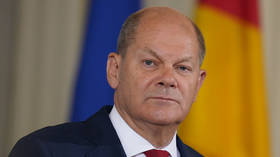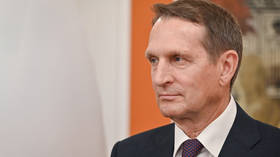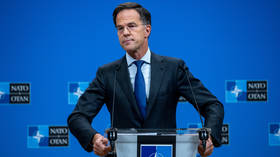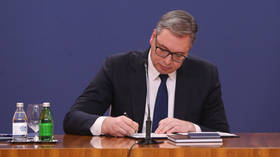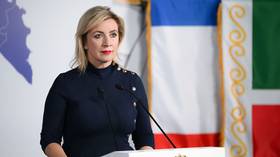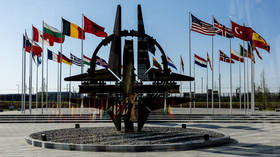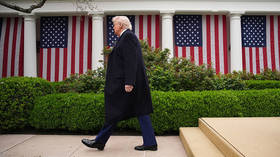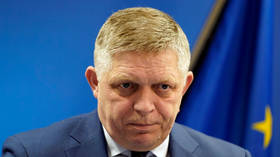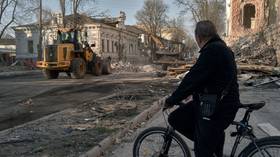German chancellor an ‘offended liverwurst’ – Ukraine
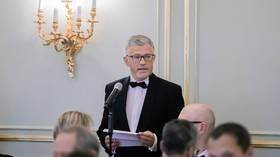
Ukraine’s ambassador to Germany, Andrey Melnik, has described the country’s chancellor, Olaf Scholz, as an “offended liverwurst” over his refusal to pay a visit to Kiev after Ukrainian authorities snubbed German President Frank-Walter Steinmeier in mid-April.
“To play an offended liverwurst doesn’t sound very statesmanlike,” Melnyk said, speaking to Germany’s DPA news outlet on Tuesday, adding: “We’re talking about the most brutal war of extermination since the Nazi attack on Ukraine, it is no preschool.”
The Ukrainian official noted, however, that his remark did not mean that Chancellor Scholz was not welcome in Kiev. More than “symbolic visits,” however, Melnyk said, Ukraine would appreciate Germany “implementing the Bundestag’s motion on the delivery of heavy weapons and fulfilling the earlier promises.”
The diplomat also criticized Berlin for failing to provide ammunition for the Gepard self-propelled anti-aircraft guns, which Germany pledged to ship to Ukraine in late April. The delivery would represent the first batch of heavy weaponry provided to Kiev by Berlin since Russia launched its offensive on February 24.
Melnyk’s ‘liverwurst’ comment came shortly after Chancellor Scholz told Germany’s ZDF TV channel that Ukraine’s refusal to receive President Steinmeier on April 13 stood in the way of Scholz’s own potential visit to Kiev. Scholz described the snub as a “remarkable instance,” pointing out that Steinmeier was re-elected as president back in February and enjoyed support from the vast majority of German MPs at the time.
Steinmeier was supposed to pay a visit to Kiev along with the leaders of Poland and the Baltic states on April 13. However, the Ukrainian authorities signaled to him the day prior that he was “not wanted” in Kiev because he had fostered good relations with Moscow.
The German chancellor said it cannot be that Germany provided “so much military assistance, so much financial assistance” to Ukraine and then is told that the president cannot visit.
Ukraine has been critical of the German government for what it sees as lackluster military support and an unwillingness to make a clean break from Russian energy exports.
While serving as foreign minister in Angela Merkel’s government, the president developed a plan of action to ensure the implementation of the Minsk agreements, which came to be known as the 'Steinmeier Formula'.
Aimed at ending the bloody conflict in the Donbass, the plan envisaged that the two breakaway republics of Donetsk and Lugansk would hold elections under Ukrainian law and OSCE oversight, whereupon they would gain special self-governing status and return the control of their borders with Russia to Kiev.
Although given the green light by Ukraine, Russia, the OSCE and the two regions back in October 2019, the scheme, however, failed to materialize, as it was fiercely resisted by the nationalist opposition in Ukraine.
Russia attacked its neighbor in late February, following Kiev’s failure to implement the terms of the Minsk agreements, first signed in 2014, and Moscow’s eventual recognition of the Donbass republics of Donetsk and Lugansk.
The Kremlin has since demanded that Ukraine officially declare itself a neutral country that will never join the US-led NATO military bloc. Kiev insists the Russian offensive was completely unprovoked and has denied claims it was planning to retake the two republics by force.
